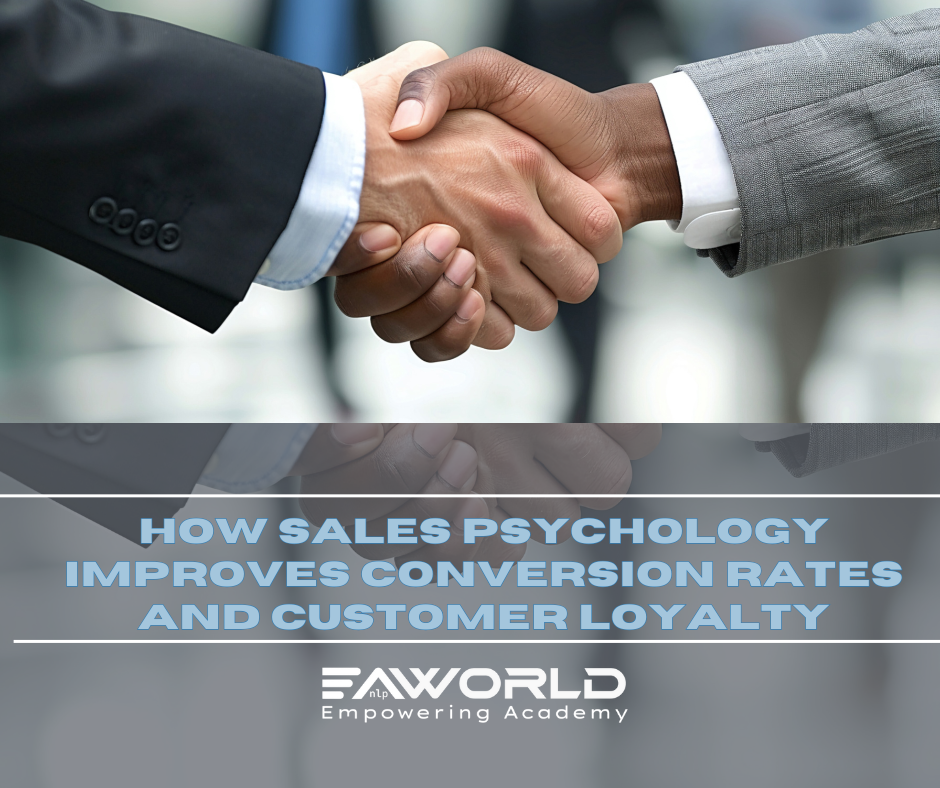
Sales, as a discipline, has evolved beyond the traditional transactional model into a sophisticated process of understanding and influencing human behavior. At the core of this transformation lies sales psychology, a field that harnesses insights from cognitive science, behavioral economics, and neuroscience to drive impactful sales strategies. By applying advanced psychological principles, businesses can not only optimize conversion rates but also cultivate customer loyalty, ensuring sustained growth in an increasingly competitive marketplace.
The Science Behind Sales Psychology
Sales psychology delves deep into the cognitive and emotional mechanisms that govern purchasing decisions. It recognizes that the majority of buying behavior is subconscious, driven by emotions and cognitive biases, rather than purely rational analysis. By understanding these processes, organizations can design highly targeted strategies that align with the psychological tendencies of their customers.
Neuroscience further amplifies the scope of sales psychology. Studies reveal that purchasing decisions often involve the brain’s reward and emotional centers, such as the limbic system and the ventromedial prefrontal cortex. Stimulating these regions through tailored communication and experiences can significantly enhance customer engagement and conversion rates.
Advanced Techniques for Improving Conversion Rates
Behavioral Framing and Anchoring
Emotional Priming
Leveraging Dopamine Loops
Neuromarketing Tactics
Scarcity and Exclusivity Bias
Cultivating Customer Loyalty Through Psychological Insights
Customer loyalty in the modern era is built on creating meaningful, long-term relationships rather than just repeat transactions. Here’s how advanced sales psychology can deepen loyalty:
Personalized Customer Journeys
Advanced CRM tools powered by AI and machine learning allow for hyper-personalization, enabling businesses to anticipate customer needs and tailor their interactions accordingly. For instance, predictive analytics can identify when a customer might need a product refill, allowing proactive outreach that strengthens trust and satisfaction.
Cognitive Dissonance Reduction
Post-purchase cognitive dissonance—the internal conflict a customer may feel about their decision—can erode loyalty. Providing reassurance through follow-up emails, customer support, and educational content about the product’s benefits helps mitigate this dissonance, ensuring a positive experience.
Emotionally Intelligent Communication
Emotionally intelligent businesses adapt their communication style to resonate with different customer segments. This includes recognizing and responding to customer emotions, whether through empathetic messaging during challenging times or celebratory gestures for milestones like birthdays or anniversaries.
Psychological Ownership
Encouraging customers to feel a sense of ownership over a product increases attachment and loyalty. Techniques such as customization options, interactive decision-making tools, or early-access programs can foster this sense of involvement and commitment.
The Endowment Effect
The endowment effect suggests that people place a higher value on items they already own. Offering trial periods or “try-before-you-buy” options can increase perceived value, making customers more likely to commit.
Implementing Sales Psychology at a Strategic Level
To leverage sales psychology effectively, businesses need to integrate these principles into their overarching sales and marketing strategies. Advanced implementation requires cross-disciplinary collaboration, blending insights from psychology, data science, and design thinking.
- Data-Driven Insights: Utilize AI-powered analytics to identify customer preferences, behavioral patterns, and emotional triggers. These insights should inform product design, messaging, and sales strategies.
- Continuous Learning: Equip sales teams with advanced training on psychological principles and customer engagement techniques. Regular workshops and simulations can help them refine their approach.
- Customer Feedback Loops: Actively gather and analyze feedback to understand emotional responses and adapt strategies for greater resonance.
- Ethical Considerations: While sales psychology is powerful, it must be applied ethically to build trust and maintain a positive brand image. Manipulative tactics can have long-term negative repercussions.

